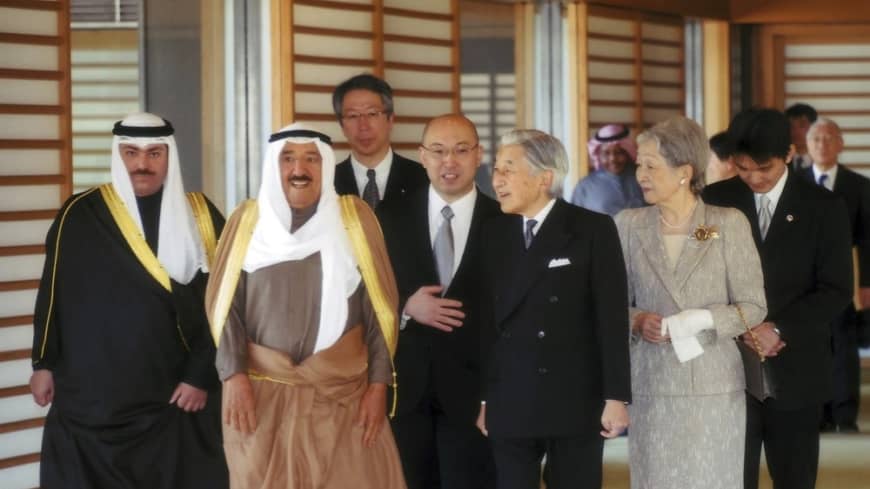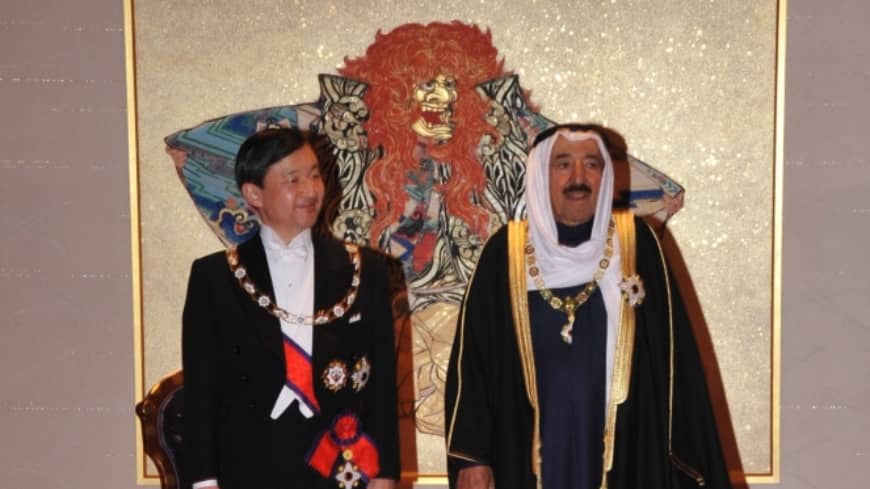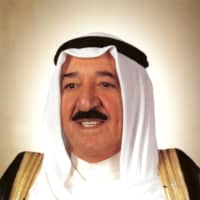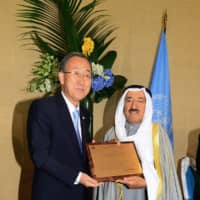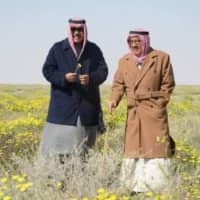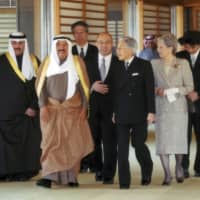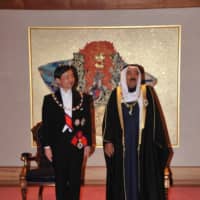On Sept. 29, the State of Kuwait, the Arab nations and the international community lost a great humanitarian leader, His Highness Sheikh Sabah Al Ahmad Al Jaber Al Sabah, late amir of the State of Kuwait. He was described by U.N. Secretary-General Antonio Guterres as “an extraordinary symbol of wisdom and generosity, a messenger of peace, a bridge-builder.”
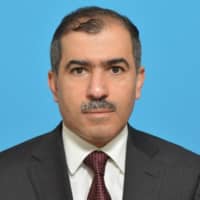
His highness was a veteran leader, well-acquainted with his country’s history, economic development, and social changes. The “dean of Arab diplomacy,” as he was known, was also the architect of the humanitarian diplomacy that became synonymous with Kuwait, in parallel with the economic diplomacy that is a pillar of Kuwait’s foreign policy.
During his tenure as prime minister from July 13, 2003, until January 2006, his highness focused on development, political and economic reform, developing laws and systems and social welfare.
Since he took the helm on Jan. 29, 2006, in addition to his domestic success promoting development, democratic practice, media freedom and women’s political participation, his highness strengthened Kuwait’s foreign policy, the foundations of which he laid following his appointment as minister of foreign affairs in 1963. This is a moderate and balanced human-centered foreign policy, one that embraces tolerance and moderation as per the teachings of our noble religion Islam. He summed up our country’s political approach in his speech on the occasion of Kuwait’s ascension to the U.N. on May 4, 1963, when he said that “Kuwait’s participation in international activities indicates that Kuwait’s independence and membership of the U.N. are not an end by themselves, but rather means by which Kuwait can share responsibility in improving the lives of the people in our country and other countries.”
These values enabled our beloved country to build friendship and respect with nations worldwide and gain the international community’s trust and respect at regional and international levels. Kuwait became a platform for Arab decisions and international stances, as it hosted several important regional and Arab conferences. His highness exerted tremendous efforts to maintain regional and global stability and resolve inter-Arab and pan-Islamic disputes. He also played a paramount mediation role to safeguard the unity of the Gulf Cooperation Council.
During his rule, Kuwait was among the first to respond to humanitarian crises worldwide. For instance, the Kuwait Fund for Arab Economic Development, established in 1961 and one of the oldest development institutions, provided 981 loans worth over $21 billion to 107 countries. This act was parallel with the significant contributions of Kuwait’s charity organizations that became our country’s primary regional and international development arms, along with our government’s offerings through regional and international organizations.
The United Nations rewarded these efforts on Sept. 9, 2014, when it awarded his highness the honorable title of “humanitarian leader” and proclaimed Kuwait an “International Humanitarian Center.” On April 12, 2019, the World Bank Group awarded his highness for his exemplary role in supporting social and economic development at the global level, including his contributions to the International Development Association and his endorsement of the capital increase for the International Bank for Reconstruction and Development.
Moreover, as I reflect on the words of his highness, “… the acts of benevolence and philanthropy are inherent values in the hearts of the Kuwaiti people,” I am bound to emphasize the humane similarities between Kuwait and Japan whose leading contributions over decades in support of humanitarian causes around the globe have been of outstanding generosity. Based on these shared values, his highness paid particular attention to strengthening the bilateral relations between the State of Kuwait and Japan, significantly through his seven official visits to Japan. Of particular note was his visit as a state guest in March 2012, thus culminating in today’s strong friendship and comprehensive partnership.
In a world where humanitarian needs are ever-increasing, his highness left a humanitarian legacy whose impact reached every corner of the world, causing his memory, may he rest in peace, to be remembered for generations.



